18 Learning Center results found.
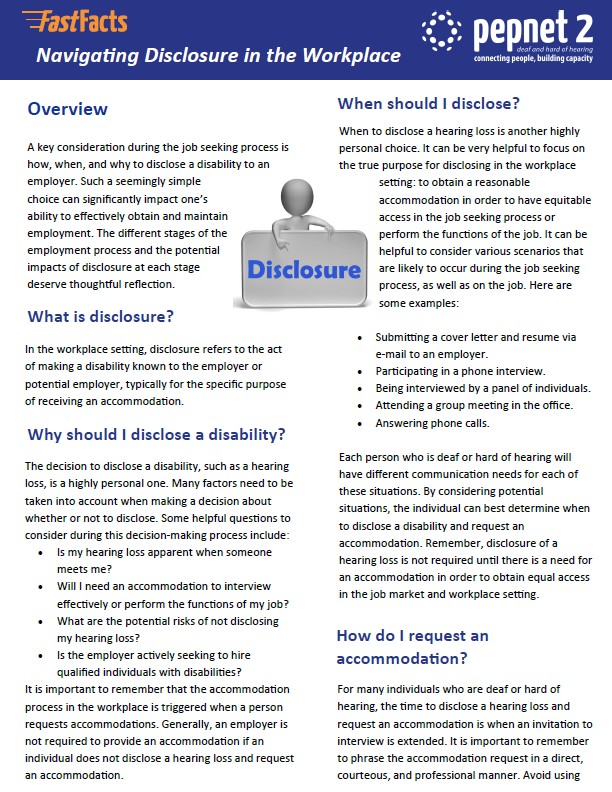
Navigating Disclosure in the Workplace
A key consideration during the job seeking process is how, when, and why to disclose a disability to an employer. Such a seemingly simple choice can significantly impact one’s ability to effectively obtain and maintain employment. The different stages of the employment process and the potential impacts of disclosure at each stage deserve thoughtful reflection.
about fast-fact, pepnet
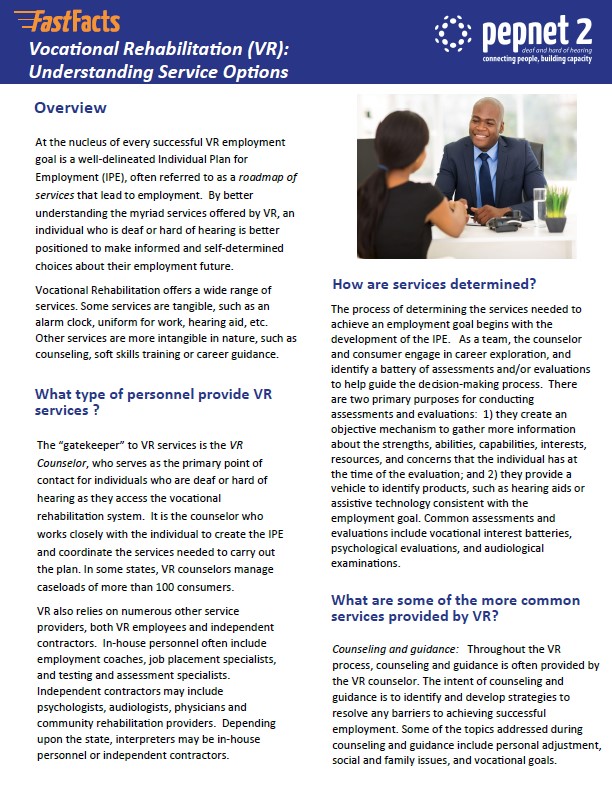
Vocational Rehabilitation: Understanding Service Options
At the nucleus of every successful VR employment goal is a well-delineated Individual Plan for Employment (IPE), often referred to as a roadmap of services that lead to employment. By better understanding the myriad services offered by VR, an individual who is deaf or hard of hearing is better positioned to make informed and self-determined choices about their employment future.
about fast-fact, pepnet
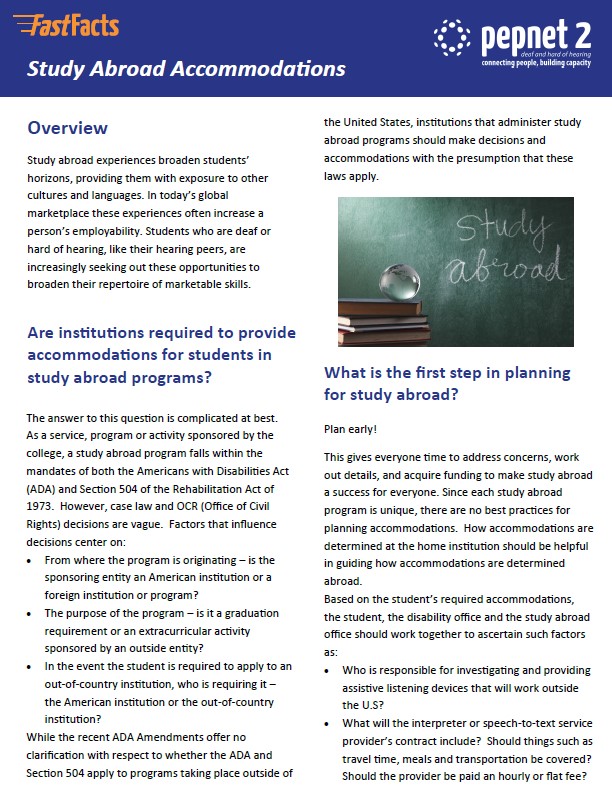
Study Abroad Accommodations
Study abroad experiences broaden students’ horizons, providing them with exposure to other cultures and languages. In today’s global marketplace these experiences often increase a person’s employability. Students who are deaf or hard of hearing, like their hearing peers, are increasingly seeking out these opportunities to broaden their repertoire of marketable skills.
about fast-fact, pepnet

Advocacy in Audiology: The Case for Captioning
From The Hearing Journal , 2013, an article by Lauren E. Storck. Dr. Storck is founder and president of the nonprofit consumer advocacy organization Collaborative for Communication Access via Captioning (CCAC). Lists and overviews the reasons why many people who need captioning do not ask for it, even though they may become increasingly excluded from education, employment, further training, healthcare, and social situations. The list is not all-inclusive; there are individual variations and many other contributing factors.
about captioning
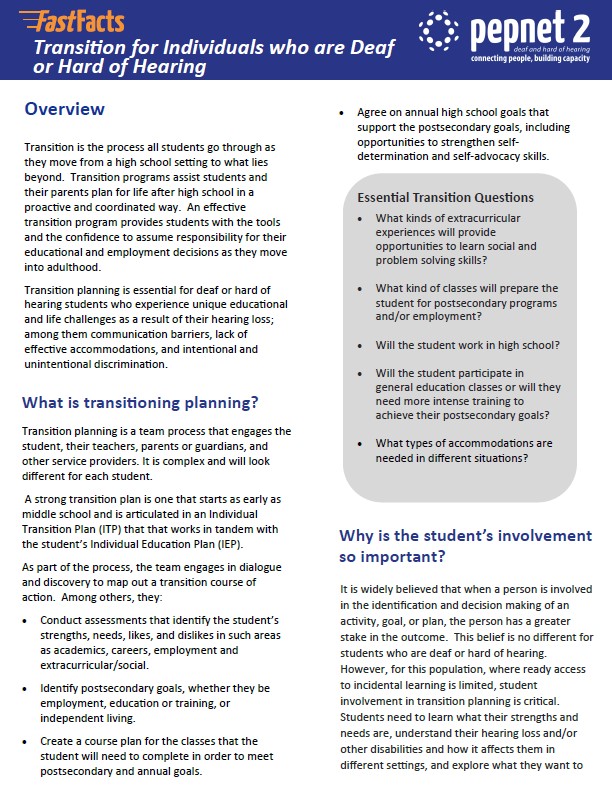
Transition for Individuals who are Deaf or Hard of Hearing
Transition is the process all students go through as they move from a high school setting to what lies beyond. Transition programs assist students' and their parents' plan for life after high school in a proactive and coordinated way. An effective transition program provides students with the tools and the confidence to assume responsibility for their educational and employment decisions as they move into adulthood.
about fast-fact, pepnet
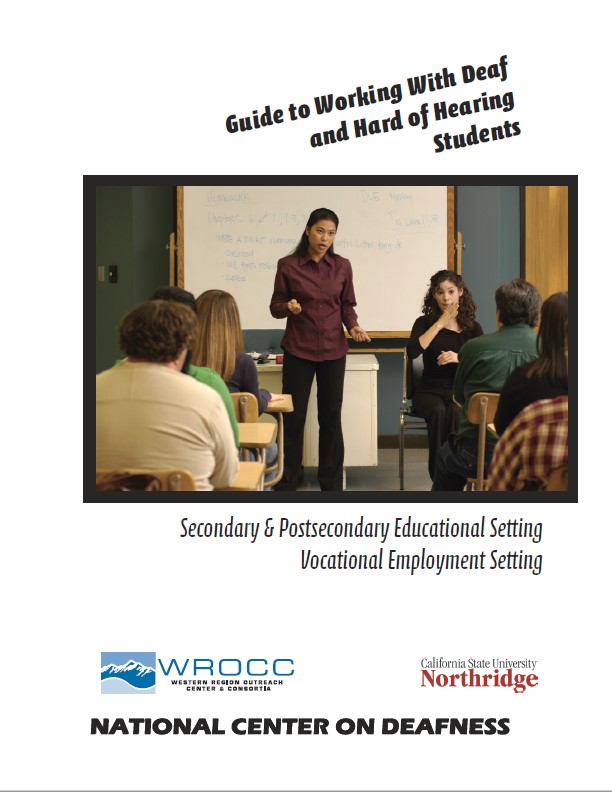
Guide to Working with Deaf and Hard of Hearing Students
Would you like a convenient resource for general information about deafness, classroom accommodations, and communication tips? Designed for faculty and staff in secondary, postsecondary, and vocational/employment programs, this pocket-sized handbook can provide information for professionals who don’t have much experience interacting with students who are deaf or hard of hearing. (2007)
about pepnet
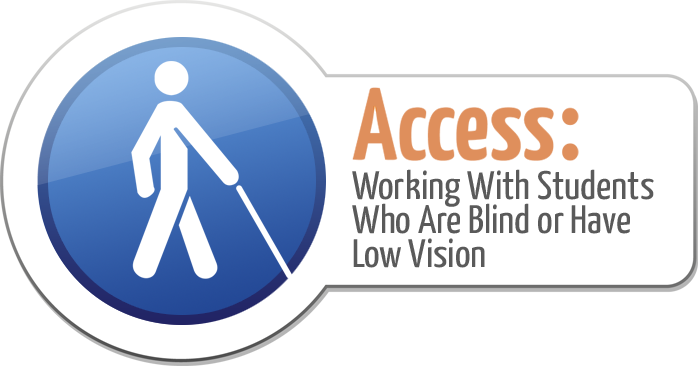
Access: Working With Students Who Are Blind or Have Low Vision
Access: Working With Students Who Are Blind or Have Low Vision Module is designed for teachers working in general education who have students who are blind or have low vision. It is meant only as an overview and will touch on some of the most important aspects of educating students who have vision loss. It will provide resources for teachers to learn more on various topics.
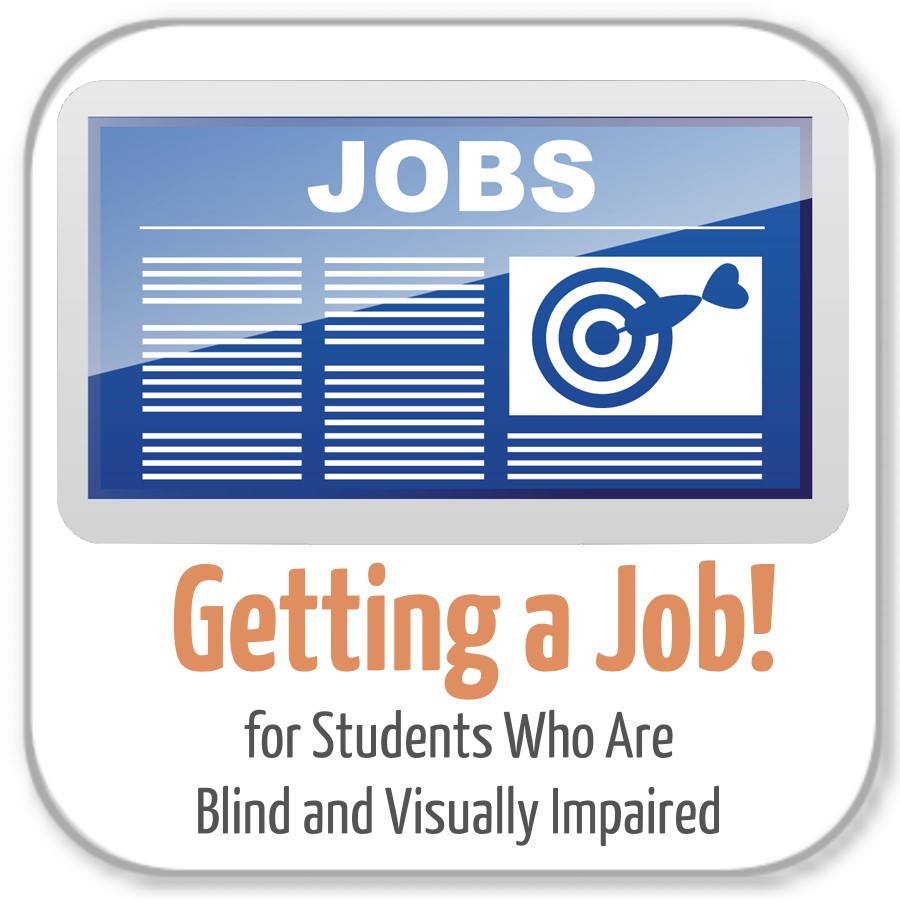
Getting a Job! for Students Who Are Blind and Visually Impaired - Module
The Getting a Job! for Students Who Are Blind and Visually Impaired online training was developed and designed for students who are blind and visually impaired and the professionals who work with them. Focusing on the transition from school to work, the training offers a series of activities, supporting documents, and topical videos designed to help the job seeker prepare for the world of work. It features several blind and low vision role models to guide students along the path to work.
From about module, blindness
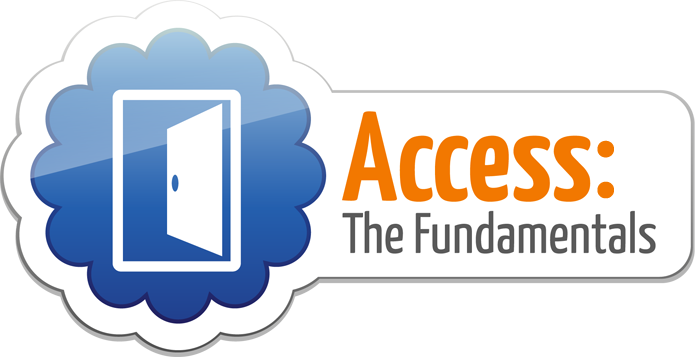
Access: The Fundamentals Module
Access: The Fundamentals is a straightforward and informative introduction to the nature of hearing loss and its implications for communication and learning in educational settings. The course also provides basic information about accommodations that can make education, employment, and other activities accessible for individuals who are deaf or hard of hearing.
about module, pepnet
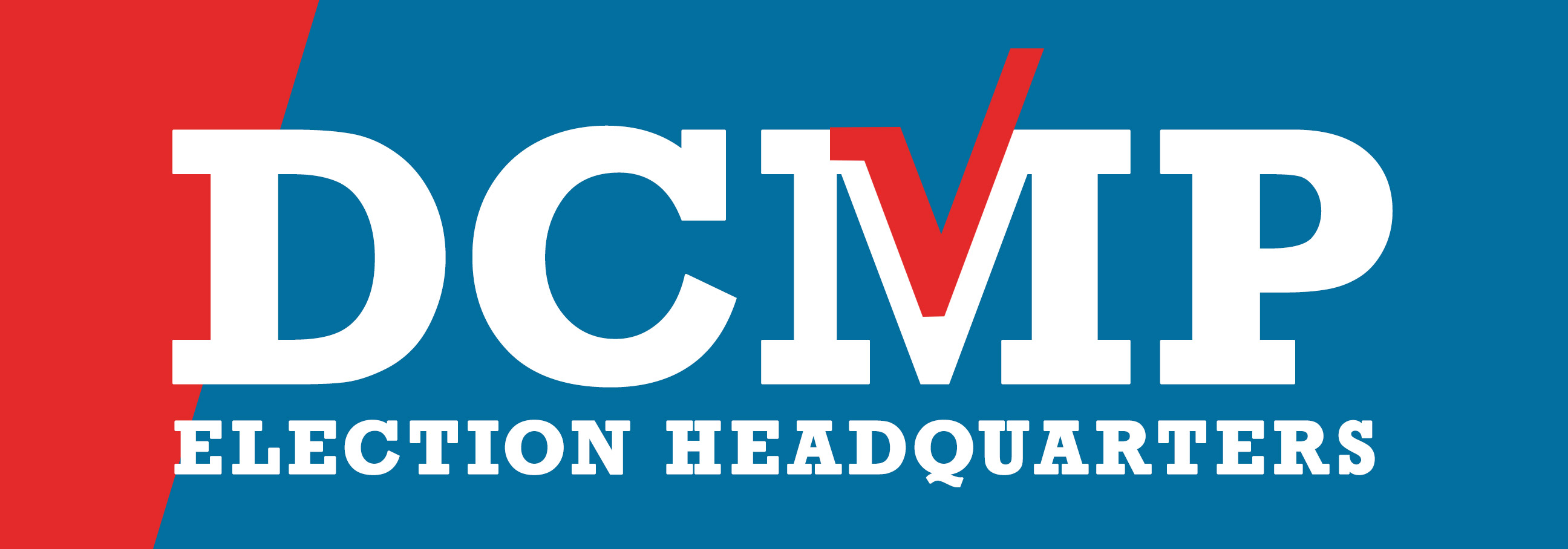
Election Headquarters
Whether you're focused on national, state, or local elections, DCMP has accessible resources to support your classroom. These include dozens of described and captioned videos for all grade levels. We also have compiled sources of information concerning the "Help America Vote Act" and other resources of special interest to voters who are blind or deaf.
about educators

Pepnet 2
Pepnet 2 (pn2) was a federally-funded project to increase the education, career, and lifetime choices available to individuals who are deaf or hard of hearing. Funding for the project ended in 2016. However, many of the resources created by this project are still available through DCMP.
From about pepnet, deaf, educators
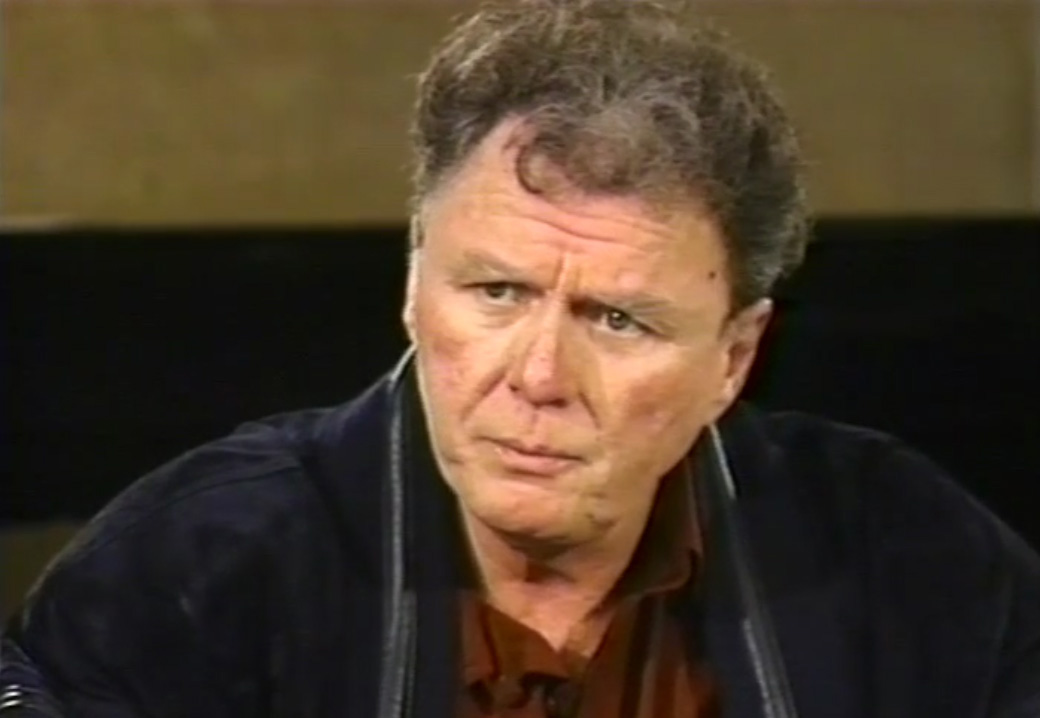
The Rewards of Description
Margaret Hardy, a pioneer in the field of audio description, discusses Gregory Frazier's descriptive services work in San Francisco with AudioVision.
From Margaret Hardy about history, description
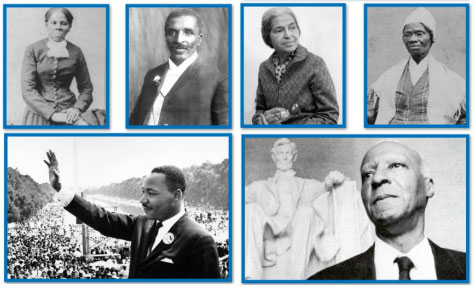
Black History Month
Over the years, there have been many great men and women who have contributed to African American history. During the month of February, thanks to Carter G. Woodson, founder of Black History Month, people from all around the globe give tribute to prominent African Americans and study their achievements.
From Kathy Buckson about educators


Amy's Start Toward a Successful Future: Why is It Important to Talk About the Future?
When I was in 2nd through 4th grade, I started attending meetings to plan for my
future. My mom wanted me to be involved and listen to people in my meeting. In
the meeting, I felt so confused and overwhelmed when I listened to their
discussions about my future. In 5th grade, I was still attending the IEP (in Texas
they are called ARD) meetings to discuss my future and how to improve my
education. By this time, I was very upset and still did not understand why I had to
be involved in the meeting every year! My mom tried to explain why I had to
attend the meeting and why it was important, but I still did not want to attend
the meeting. Then, later when I was in the 6th through 7th grade, I finally started
to participate and discuss issues on how to improve my education and plan my
future a little bit at a time. Just in case, I had my advocate there to take over and
tell them about my classes if I needed help.
From Amy Johnson about parents, educators
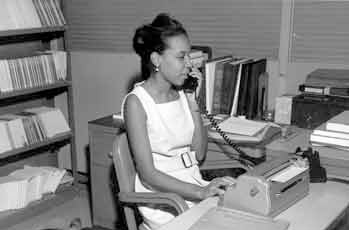
Blindness and Black History: One Leader's Perspective
When Carter G. Woodson created the observance of "Negro History Week," which later became "Black History Month," he inspired African Americans to protect and uphold their history, which not only includes written history, but also oral history and the preservation of special and unique artifacts. Our history is our genesis, our present, and our path to the future. It explains how we came to be, who we are, where we are today, and where we are going tomorrow.
From Freddie Peaco about history, educators, blindness